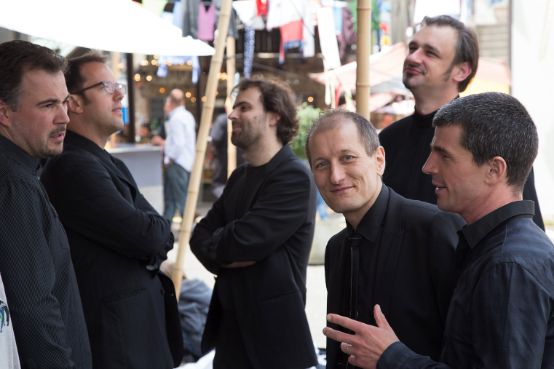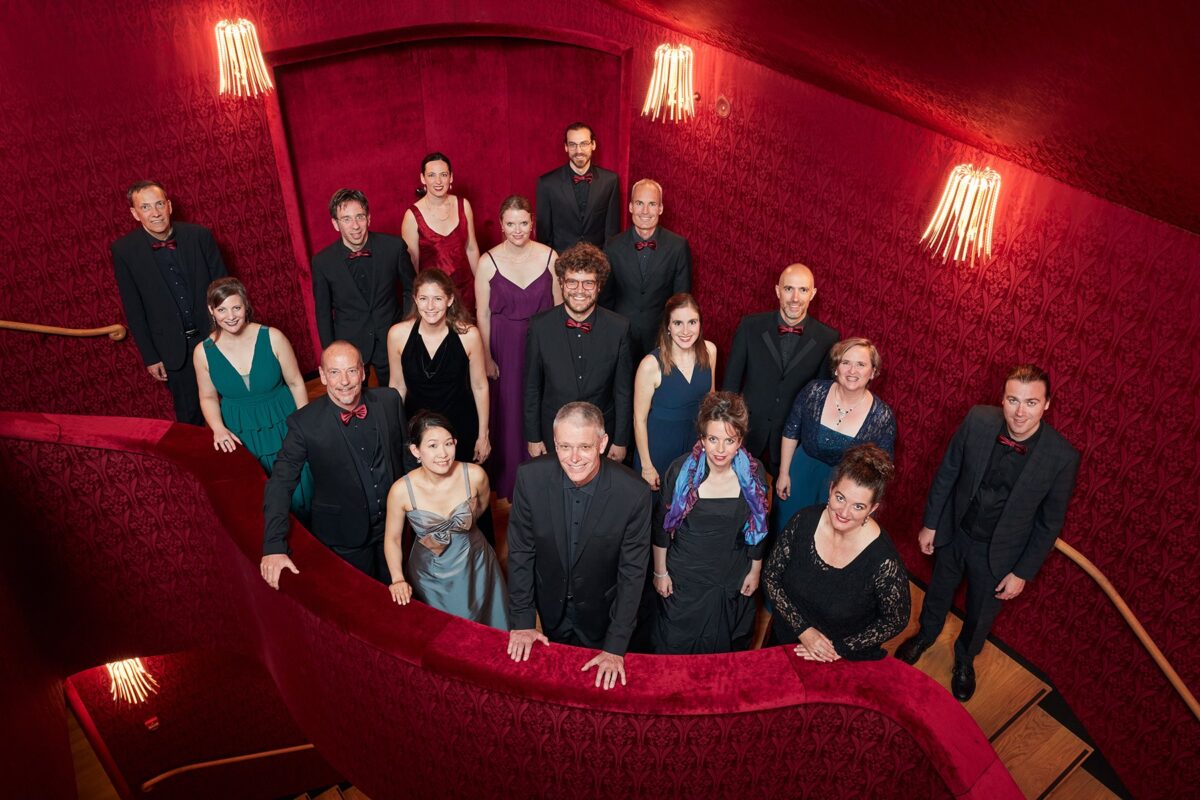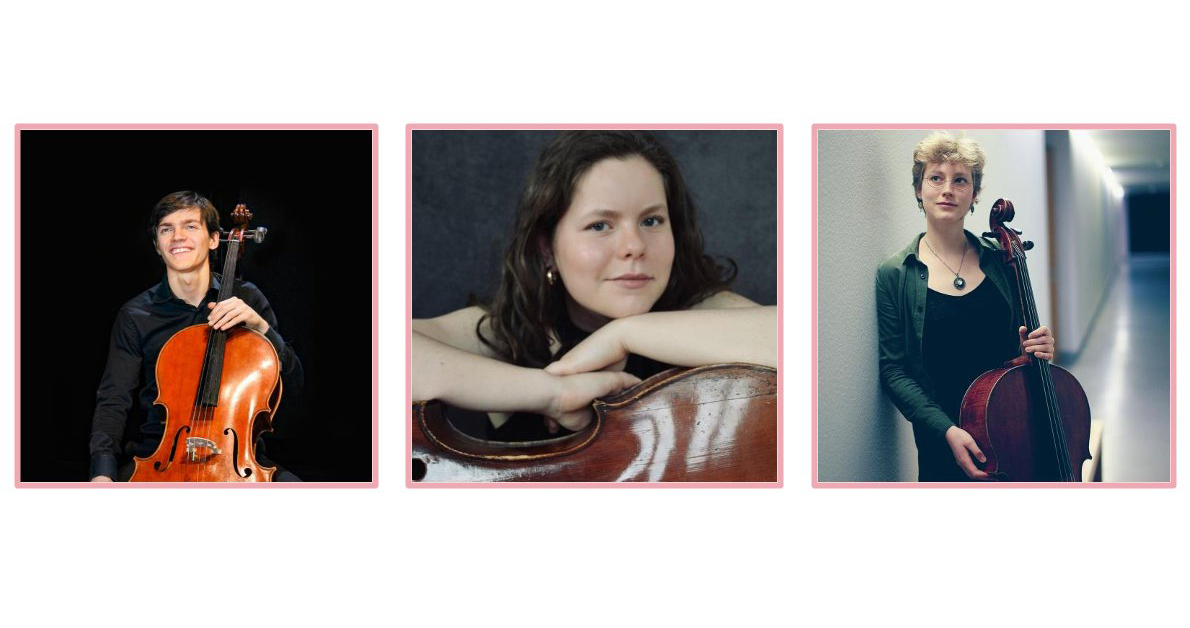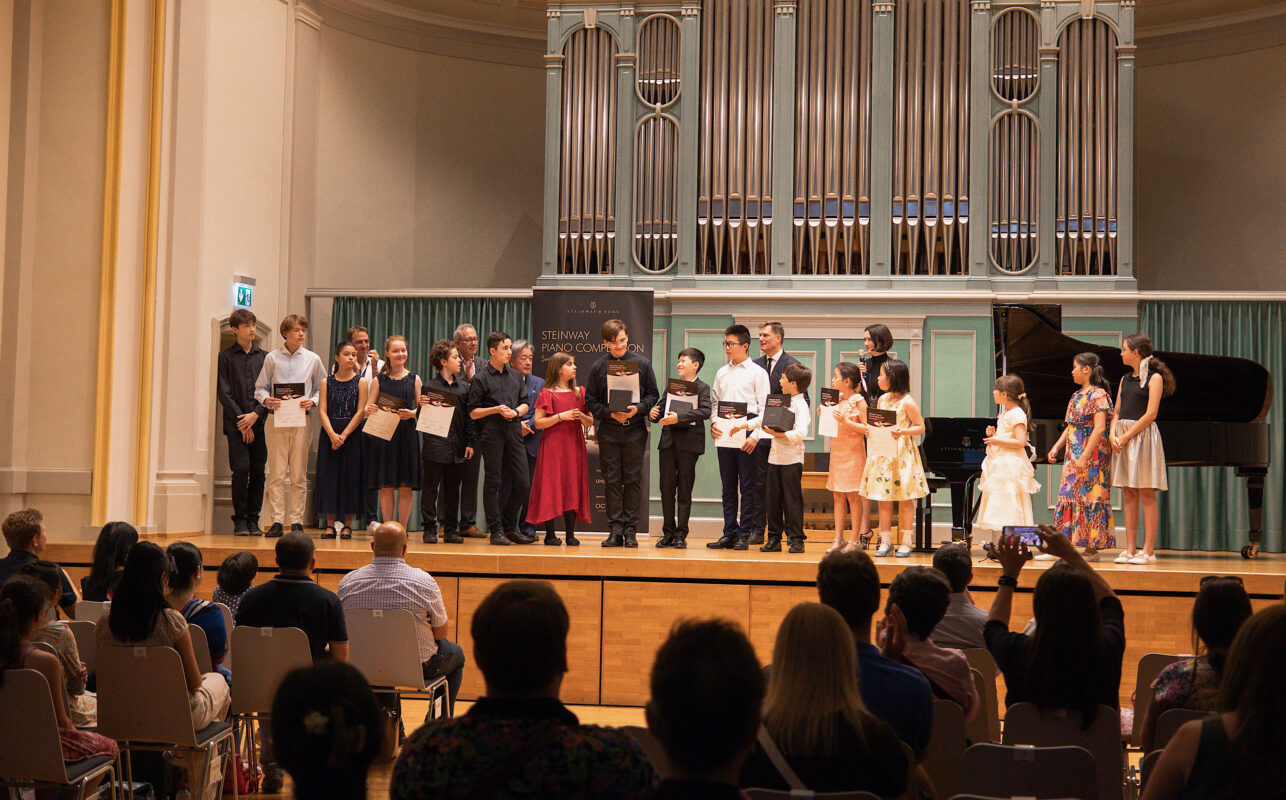Suggestions in and from the east
Pre-art brings musicians into contact across political borders and explores musical boundaries. Following a concert at the pre-art festival in Wallisellen, the pre-art soloists and the Convergence New Music Ensemble will be performing new works in Boswil and elsewhere this fall, including those created for the pre-art composition competition.

"This piece takes us to the limits of what can be played and heard," warns Boris Previsic in the Zwicky-Areal in Wallisell, before he directs his flute into an acrobatic breath and breathing maneuver: he begins the impressive piece DAH (Bosnian for "breath") by Bosnian composer Aliser Sijaric (*1969), which he composed on the basis of studies on the breathing of schizophrenics. Sometimes restlessly halting, sometimes prancingly narrative, it explores the boundaries between sound and breath, between sounding and hissing, documenting loss of breath and breathing again, loss of meaning and gain of meaning at the same time.
With his introductory words, Previsic names a principle that not only aptly describes the concert program of the dedicated suburban festival "Blick in den Osten!" (August 16 to 18, 2013), but at the same time stands for a central concern of pre-art It is the borders, or rather: overcoming them; those between countries and cultures and those that surround styles, genres and traditions. pre-art, founded in 2001 by Matthias Arter and Boris Previsic, has been dedicated from the very beginning to the exchange with and promotion of young musicians from marginalized regions of Europe, mainly from Southeast Europe and the Caucasus. In addition to organizing composition competitions, artist residencies, master classes, instrument and sheet music assistance and other support measures for talented musicians from these regions, they are responsible for an impressive variety of intercultural art projects on both sides of the border.
However, the focus is not only on cultural boundaries, but also on artistic ones: "pre-art explores aesthetic boundaries and thus enables new artistic paths", according to its charter. Tradition is confronted with the present, the center with the province, the "so-called marginal" expresses "the essence of our culture" in the difference to the established. However, exploring borders also means moving closer together and addressing commonalities. Inner borders thus become the subject matter: for example in the pre-art project "Safientriennale", a transdisciplinary art spectacle that connects the mountain regions of the Caucasus and the Balkans with the equally marginalized Swiss Safiental. Or in the Sonemus ensemble founded in Sarajevo in 2001 under the direction of Aliser Sijaric, which brings together musicians from the successor states of Yugoslavia, which are still working together reluctantly, thus overcoming borders on site.
Balancing and irreconcilable
In the Zwicky-Areal it becomes clear that this borderline work also develops a high aesthetic productivity. In the piece Jazz Exprompt by the young Belarusian composer Andrey Tsapko (*1987), a jazz vision unfolds that oscillates between pulling accordion sounds, deep bass vibrations and catchy melodic quotations, light-footedly balancing the new with the old and the Eastern with the Western. There is no reconciliation of opposites in the piece OFF by the Macedonian Darija Andovska (*1979). OFF stands for Oblivion, Fade and Farewell, designations for a change of "aggregate state" quoted from Shakespeare. Andovska traces these transitions, but leaves them standing abruptly. The musicians - Matthias Arter on the oboe, Vladimir Blagojevic on the accordion, Aleksander Gabrys on the double bass and Boris Previsic on the flutes - use their entire bodies to create a dramatic and at the same time pleasurable exploration of the apparent. "As if there was ..." they breathe between stomping and tapping, before continuing in the high squeals of the flutes until a Stravinsky-like outburst of chaos, which even the low bass voices can no longer keep their feet on the ground. In addition to other recent compositions from Armenia and Russia, the concert in Wallisellen is framed by the G major Trio Sonata by J. S. Bach. The eruptive, agitated music is countered by the smooth, flowing music. Only the accordion "smuggled in" as basso continuo lends the familiar a touch of border-crossing.
-

- Photo: Jano Demetrashvili
- Convergence New Music Ensemble








